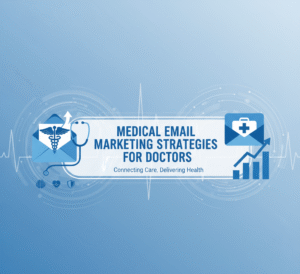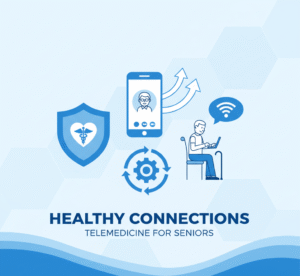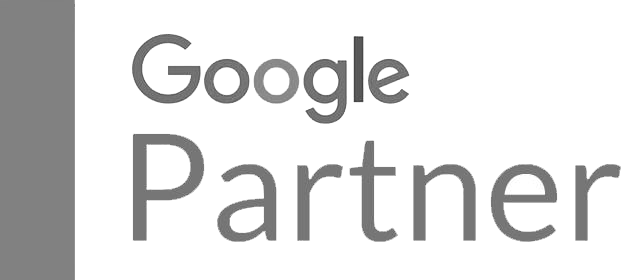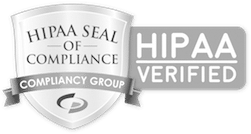“Master building medical authority online to attract more patients and dominate search rankings by showcasing your practice’s experience, expertise, authoritativeness, and trust (E-E-A-T).”
In today’s digital world, a strong online presence isn’t just a bonus for medical practices. It’s essential. Patients are turning to the internet more than ever to research symptoms and look for treatments.
Most importantly, they search for trusted healthcare providers. This is where E-E-A-T comes in. Experience, Expertise, Authoritativeness, and Trust are Google’s benchmarks. They determine who ranks high in search results. For a medical practice, high rankings mean more visibility. More visibility means more patients. This article will show you how to build medical authority online. It will detail strategies to make your practice stand out. You will learn to earn patient confidence.
Understanding E-E-A-T in Healthcare
First, let’s break down E-E-A-T. What does each component mean for a medical practice?
Experience
Experience is about firsthand knowledge. It’s about doing the work. For a doctor, this means years in practice. It means seeing many patients. It means performing countless procedures. Google wants to see evidence of this. They want to know your practice has real-world experience.
Expertise
Expertise goes beyond experience. It’s profound knowledge in a specific area. A general practitioner has broad knowledge. A specialist has deep expertise in one field. Think of a cardiologist. They are experts in heart health. A dermatologist is an expert in skin conditions. You need to show your specific expertise.
Authoritativeness
Authoritativeness is about reputation. It’s about being recognized as a go-to source. Do other experts cite your work? Do reputable organizations link to your website? Are you seen as a leader in your field? This builds authority.
Trust
Trust is the foundation of E-E-A-T. Patients must trust you, and Google must trust you. This means your website is secure, your information is accurate, your practice has a good reputation, transparent practices, and patient privacy.
For medical practices, E-E-A-T is especially critical. This is because health information falls under what Google calls “Your Money or Your Life” (YMYL) topics. Inaccuracies in YMYL content can directly impact a person’s health or financial well-being. Therefore, Google applies stringent standards. They want to ensure that only highly credible sources provide health information. You need to meet these strict standards.
The Foundation: Optimizing Author Bios and Credentials
Your medical team is your greatest asset. Their qualifications speak volumes. Properly showcasing these is crucial. It’s a direct way to demonstrate Experience and Expertise.
Detailed Doctor Bios
Every doctor in your practice needs a comprehensive bio. Don’t just list their name and title. Go deeper. Include their full educational background. Mention their medical school. List their residencies and fellowships. Detail their board certifications. These are vital credibility markers.
Also, highlight their professional affiliations. Are they members of reputable medical associations? Do they hold leadership positions in these groups? Such affiliations show commitment to their field and signal peer recognition.
Specify their areas of specialization. What unique skills do they possess? What specific conditions do they treat? Be very clear. Patients often search for doctors with particular expertise. Make it easy for them to find yours.
Add their years of experience. How long have they been practicing medicine? How many procedures have they performed? Quantify their expertise where possible. For instance, “Over 15 years of experience in cardiology” is better than Experienced cardiologist.”
Include any awards or recognitions. Have they been recognized for their work? Have they published research? These details further build their authority.
Use professional, high-resolution photos. A warm, friendly face helps build connections and makes your doctors more approachable.
Dedicated “About Us” and “Our Team” Pages
Your website should have dedicated pages for “About Us ” and “Our Team.” The “About Us” page tells your practice’s story: When was it founded? What is its mission? What are its core values? This helps patients connect with your practice on a deeper level.
The “Our Team” page should feature each doctor. Link their detailed bios from this page. This creates a central hub of expertise and makes it easy for patients to explore your team’s qualifications.
Ensure these pages are easy to navigate. Make the information scannable. Use clear headings and bullet points. Patients should quickly find what they need.
Linking to External Verifications
Don’t just state credentials—verify them. Link to external sources. Link to the websites of medical boards. Show that their board certifications are current. Link to the university pages where they studied. Link to medical association directories.
These external links serve two purposes. First, they provide proof. They confirm the information you present. Second, they pass authority signals from these reputable sites to yours. This tells Google that your claims are legitimate.
For example, if a doctor is board-certified by the American Board of Internal Medicine, link directly to their profile on the ABIM website; if they are an adjunct professor at a local medical school, link to their faculty page.
The Power of Patient Testimonials and Reviews
Patients trust other patients. Online reviews are powerful. They are a direct reflection of patient experience. They build Trust and provide social proof. Actively managing your online reputation is non-negotiable.
Gathering Patient Testimonials
Don’t wait for reviews to come to you. Proactively ask for them. After a positive experience, gently request a review. You can do this in person, send a follow-up email, or even include a link on your billing statements.
Make the process easy. Provide direct links to your Google My Business profile—link to Yelp, Healthgrades, or Zocdoc. The fewer steps, the more likely patients are to leave a review.
Train your staff. They are often the first and last point of contact. They can encourage satisfied patients to share their experiences.
Consider video testimonials. These are even more impactful. A patient sharing their story on video is incredibly persuasive. Get their written consent first.
Showcasing Reviews on Your Website
Display your best reviews prominently. Create a dedicated “Testimonials” page and feature glowing reviews on your homepage. Use snippets of reviews on service pages. This immediately builds credibility for new visitors.
Use a dynamic review widget. Many tools exist. They pull reviews from various platforms. This keeps your reviews fresh and up-to-date. It also saves you manual work.
Always respond to reviews. Respond to positive ones with gratitude. Respond to negative ones with empathy and a resolution plan. This shows you care, demonstrates professionalism, and can even turn a negative experience into a positive perception.
Managing Your Online Reputation
Monitor your online presence constantly. Use tools to track mentions of your practice. Be aware of what patients are saying.
Address negative feedback promptly and professionally. Do not get defensive. Acknowledge the patient’s concerns. Offer to discuss the matter privately. This shows you are committed to patient satisfaction. It builds trust, even in challenging situations.
Encourage happy patients to share their stories. Positive reviews often outweigh negative ones, and a consistent stream of good feedback protects your reputation.
Creating Expert-Level Content
Content is king. Expert-level content is essential for E-E-A-T for medical practices. It showcases your Expertise, builds Authority, and helps patients.
Blog Posts and Articles
Regularly publish high-quality blog posts. Focus on common health questions. Address patient concerns. Provide clear, accurate, and actionable information.
Your content should be easy to understand. Avoid overly technical jargon. If you must use medical terms, explain them clearly. Remember your audience. They are often patients, not medical professionals.
Cover a wide range of topics relevant to your specialty. For a family practice, this might include seasonal flu prevention, managing chronic conditions, or healthy eating tips. For a specialist, it would be more focused. A dermatologist might write about acne treatments, skin cancer prevention, or anti-aging procedures.
Use examples. Use case studies (anonymized, of course). Make your content engaging. Break up long blocks of text with headings, subheadings, and bullet points. Include relevant images or infographics.
FAQs Section
Create a comprehensive FAQ section. This will help patients quickly find answers and address common queries your staff might receive, saving time for everyone.
Organize your FAQs by category, such as “Appointments,” “Billing,” and “Specific Conditions.” This makes navigation easy.
Ensure answers are clear and concise. Link to relevant blog posts or service pages for more detailed information. This will keep users on your site longer and reinforce your expertise.
Video Content
Video is increasingly popular. Create short, informative videos. You can explain standard procedures. You can answer frequently asked questions. You can introduce your team.
Videos add a personal touch. They help patients connect with your doctors. They demonstrate your expertise in a more engaging format. Share these videos on your website. Share them on social media.
Consider “explainer” videos. These break down complex medical topics into simple terms—for example, a video explaining the symptoms of a heart attack or detailing preparation for a colonoscopy.
Infographics and Visual Aids
Medical information can be dense, but infographics make it digestible. Create visuals that explain conditions, treatments, or healthy habits.
Share these on your blog and social media. They are highly shareable. They can attract links from other websites. This builds Authoritativeness.
Patient Guides and Resources
Offer downloadable patient guides. These could be e-books on managing diabetes, a checklist for preparing for surgery, or a guide to understanding lab results.
These resources provide immense value to patients. They establish your practice as a trusted source of information and serve as lead magnets, helping you build your email list.
Constantly Update and Review Content
Medical information changes, new research emerges, and guidelines are updated. Regularly review and update your content to ensure it is always current and accurate.
Outdated information can harm your E-E-A-T. It can erode Trust. Schedule regular content audits. This ensures your website remains a reliable source.
Securing Mentions from Reputable Health Organizations
Building Authoritativeness means gaining recognition from peers. When other reputable health organizations mention or link to your practice, it’s a powerful signal to Google.
Guest Posting and Expert Commentary
Offer to write guest posts for other medical blogs. Contribute articles to health publications. Provide expert commentary for news outlets.
This puts your doctors’ names and expertise in front of a wider audience. It generates valuable backlinks to your website. These backlinks are a strong indicator of Authoritativeness. They tell Google that your site is a credible source.
Focus on publications within your niche. For example, a pediatrician might guest post on a parenting blog. A sports medicine doctor might write for an athletic training website.
Speaking Engagements and Presentations
Encourage your doctors to speak at medical conferences, have them present at community health events, and lead workshops or seminars.
These engagements position your doctors as thought leaders. They build their personal brands. They can also lead to mentions in event programs, news articles, or academic papers. These external mentions boost your practice’s authority.
Always ensure your practice is credited. Include your website URL in any presentation materials.
Partnerships with Local Health Initiatives
Collaborate with local hospitals. Work with community health centers. Partner with non-profit organizations focused on health.
Participate in health fairs. Offer free screenings. Sponsor local health events. These partnerships demonstrate your commitment to community health. They can also result in mentions on partner websites. Such mentions are valuable for local SEO and building trust within your community.
Media Relations and Press Releases
When your practice achieves something notable, share it. Did a doctor win an award? Did you implement a new, innovative treatment? Did you participate in a research study?
Issue press releases, contact local news outlets, and get media coverage. News mentions and articles provide strong authority signals, showing that your practice is newsworthy and respected.
Citations and Directory Listings
Ensure your practice is listed in all relevant online directories. Think of medical-specific directories like Healthgrades, Vitals, and Zocdoc. Also, general directories like Yelp and Yellow Pages should be included.
Consistency is key here. Your Name, Address, and Phone Number (NAP) must be identical across all listings. Inconsistencies can confuse search engines. They can hurt your local search rankings.
These directory listings act as citations. They are like mini-mentions of your practice. Many high-authority sites include these. They contribute to your overall Authoritativeness.
Technical SEO for Trust and Visibility
Beyond content and reputation, technical aspects of your website are critical. They impact how Google perceives your site. They directly influence Trust and visibility.
Secure Website (HTTPS)
This is non-negotiable. Your website must use HTTPS, which means its address starts with “https://” instead of “http://.” The “s” stands for secure.
HTTPS encrypts data exchanged between your website and visitors. It protects sensitive patient information. Google prioritizes secure websites. Browsers often warn users about insecure sites. This can scare away potential patients. Get an SSL certificate. It’s a foundational element of Trust.
Mobile-Friendliness
Most patients access websites on their phones. Your website must be responsive and adapt to different screen sizes.
Google uses mobile-first indexing. This means they primarily use the mobile version of your content for ranking. A clunky, non-mobile-friendly site will suffer in search rankings. Test your site’s mobile-friendliness. Ensure easy navigation and readability on all devices.]
Website Speed
Patients are impatient. Slow-loading websites frustrate users. Google also penalizes slow sites. Optimize your website’s loading speed.
Compress images, use efficient code, and leverage browser caching. A faster site improves user experience and boosts search rankings.
Precise Navigation and User Experience (UX)
A well-organized website is easy to use. Patients should find information quickly. Your services, doctor bios, contact information, and patient portal should be easily accessible.
Use intuitive menus and implement clear calls to action. A positive user experience encourages more extended visits. It signals to Google that your site is valuable, which indirectly helps E-E-A-T.
Schema Markup for Medical Practices
Schema markup is structured data that helps search engines understand your content better. This is very important for medical practices.
Use the “MedicalPractice” schema. Mark up your doctors’ profiles with the “Physician” schema. Add the “Review” schema for testimonials. Use the “FAQPage” schema for your FAQ section.
Schema markup can lead to rich snippets in search results. These are enhanced listings. They can include star ratings, appointment links, or direct answers to questions. Rich snippets make your listing stand out. They improve click-through rates. They clearly demonstrate your expertise to Google.
Local SEO Optimization
Local searches are vital for medical practices. Patients search for “doctor near me.” Optimize for local SEO.
Claim and optimize your Google My Business profile. Complete every section. Add photos. Post updates regularly. Encourage reviews.
Ensure your NAP (Name, Address, Phone) is consistent everywhere online. List your practice in local directories. Build local backlinks. This helps Google connect your practice to local patients. It boosts your local search rankings.
The Ongoing Commitment: Building and Maintaining E-E-A-T
Building E-E-A-T is not a one-time task. It’s an ongoing process. You must continually work to maintain and improve it.
Consistent Content Creation
Keep producing high-quality content, stay up-to-date on medical developments, and address new patient concerns. A static website eventually loses relevance: a dynamic, frequently updated site signals activity and ongoing expertise.
Active Reputation Management
Continuously monitor reviews, respond to feedback, and encourage new reviews. Your online reputation is constantly evolving, and active management protects your E-E-A-T.
Professional Development
Encourage your doctors to continue their education, support their participation in conferences, and highlight their ongoing professional development. This demonstrates a commitment to lifelong learning and maintaining expertise.
Website Maintenance
Check your website regularly for broken links, update plugins, and ensure all security measures are current. A well-maintained website functions correctly and provides a reliable experience for users and search engines.
Stay Informed on Google Updates
Google’s algorithms change. Stay informed about updates, especially those affecting YMYL content, and adjust your strategies as needed. Adaptability is key to long-term success.
Conclusion: Partnering for E-E-A-T Success
Building robust E-E-A-T for your medical practice requires a multifaceted approach. It combines showcasing genuine experience and expertise. It means building strong authoritativeness through peer recognition. It involves fostering unwavering trust with patients and search engines. You need detailed bios. You need patient testimonials. You need expert-level content. You need strategic partnerships. You need solid technical SEO. Each piece contributes to a robust online presence. This presence attracts more patients. It helps you dominate search rankings.
However, navigating the complexities of E-E-A-T and medical SEO can be daunting. It demands time, specialized knowledge, and consistent effort. Many private medical practices simply don’t have the internal resources for such a comprehensive strategy.
This is where a specialized partner can make a significant difference. InvigoMedia is a premier healthcare marketing agency. We understand the unique challenges and opportunities in the medical field. We help practices build authority through comprehensive strategies. We offer professional website design tailored for medical practices. We provide robust SEO strategies focused on E-E-A-T. We manage your online reputation effectively. We ensure your practice stands out. We attract the right patients.
InvigoMedia’s team of experts works with you to develop a customized plan that highlights your unique strengths and addresses your specific goals. We handle everything from optimizing your Google My Business profile to crafting engaging, expert content. Our goal is simple: to help your practice achieve top search rankings. We want you to earn the patient confidence you deserve.
Don’t let your practice get lost in the digital noise. Invest in your E-E-A-T—partner with InvigoMedia. Let us help you build a robust online presence. This presence will secure your future success.
Frequently Asked Questions (FAQs)
Q: What exactly does E-E-A-T stand for in the context of medical practices?
A: E-E-A-T stands for Experience, Expertise, Authoritativeness, and Trust. For medical practices, it refers to Google’s criteria for evaluating the quality and trustworthiness of medical content and healthcare providers online. It’s crucial for ranking high in search results, especially for “Your Money or Your Life” (YMYL) topics like health information.
Q: Why is E-E-A-T more critical for medical websites than other types of businesses?
A: Medical websites deal with YMYL content. This means inaccurate or misleading information can directly harm a person’s health. Google applies stricter standards to YMYL sites. They want to ensure that only highly credible and trustworthy sources provide health information. Therefore, strong E-E-A-T is essential for medical sites to rank.
Q: How can I demonstrate “Experience” if my practice is relatively new?
A: Even new practices can show experience. Highlight the individual experience of your doctors. Detail their years of medical school, residency, and fellowship. Emphasize any past roles or specialized training. Showcase the collective expertise of your team. Focus on specific cases or procedures you have handled successfully.
Q: What’s the best way to get more patient reviews for my practice?
A: The best way is to ask simply. Make it easy for patients to leave reviews. Provide links to your Google My Business profile, Yelp, Healthgrades, or Zocdoc. You can ask in person after a positive visit. Send follow-up emails. Include review requests on appointment reminders or billing statements. Respond to all reviews, positive and negative.
Q: Should I respond to negative patient reviews online?
A: Yes, always respond to negative reviews professionally and empathetically. Acknowledge the patient’s concern. Offer to discuss the matter privately to resolve the issue. Do not get defensive. A thoughtful, respectful response can turn a negative experience into a positive perception of your practice’s patient care. It shows you care about patient satisfaction.
Q: What kind of content should a medical practice create to improve E-E-A-T?
A: Create expert-level content. Focus on blog posts, articles, and FAQs that answer common patient health questions. Explain complex medical topics in simple terms. Use videos to introduce doctors and explain procedures. Offer downloadable patient guides. Always ensure the content is accurate, up-to-date, and understandable for a general audience.
Q: How do backlinks from other reputable health organizations help my E-E-A-T?
A: Backlinks from reputable health organizations act as a vote of confidence. They tell Google that other trusted entities in the medical field recognize your practice’s authority and expertise. This significantly boosts your Authoritativeness. It is a strong signal for higher search rankings.
Q: Is having a secure (HTTPS) website really that important for E-E-A-T?
A: Absolutely. HTTPS is a fundamental component of Trust. It encrypts data, protecting patient privacy. Google prioritizes secure websites. Browsers often warn users about insecure HTTP sites. An insecure website can deter patients. It signals a lack of professionalism. It directly harms your E-E-A-T.
Q: What is Schema Markup, and how does it help medical practices?
A: Schema Markup is structured data. It helps search engines understand the specific content on your pages. For medical practices, it allows you to tag information like doctor profiles, services, reviews, and FAQs. This can lead to “rich snippets” in search results. These enhanced listings stand out. They provide more information directly in the search results, improving visibility and click-through rates. It clearly signals your expertise to Google.
Q: How often should I update the content on my medical practice website?
A: Medical information constantly evolves. You should review and update your content regularly. Aim for at least quarterly reviews of your core medical content. Update information as new research emerges, guidelines change, or new treatments become available. Consistent updates signal that your site is a reliable, current source of information, boosting your E-E-A-T.













